It has been a while since the American Ornithological Society (AOS) last informed the ornithology and birding communities about its progress in addressing harmful or exclusionary English bird names and in developing a process to change such names in a thoughtful, proactive way. This initiative is central to the AOS’s goal of building a more inclusive and welcoming community of people interested in the scientific study, observation, and conservation of birds in the Americas.
In its most recent blog post concerning English bird names, the AOS announced the formation of an ad hoc committee charged with the task of developing the process leading to changes in such names, and that Erica Nol, Troy Peters, and Daniel Cadena had agreed to serve as co-chairs. Since that announcement, the co-chairs and AOS leadership worked to populate the committee, which has been meeting regularly since September 2022 and quietly making some progress that we are happy to briefly report on.
The AOS invited individuals to participate on the ad hoc English Bird Names Committee based on their relevant but varied experiences and perspectives. These individuals are well suited to weigh the concerns of users of bird names (related to maintaining ease of communication, elements of historical legacy, and stability) with the needs and complexities of diversity, equity, inclusion, and social justice (DEIJ). Accordingly, committee members are not only experienced professional ornithologists, communicators, educators, or avid birders, but also open-minded and active listeners who are sensitive to DEIJ issues and are willing to engage in constructive, collaborative, big-picture-oriented conversations. We are happy to announce that members of the committee are:
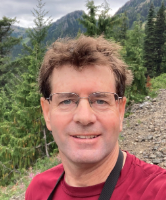
Steve Hampton. Steve is recently retired from California Department of Fish and Wildlife, where he was involved in seabird and habitat restoration. As a citizen of Cherokee Nation and birder most of his life, he has been an active participant and researcher on the topic of bird names.
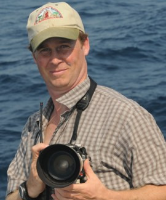
Marshall Iliff. Marshall is Project Leader for eBird at the Cornell Lab of Ornithology’s Center for Avian Population Studies. One of his roles at the Lab is to help manage the eBird/Clements Checklist, which is the taxonomic backbone for eBird and other Cornell Lab initiatives. Marshall also assists with the Working Group of Avian Checklists, which is aiming to create a consensus global checklist of birds.
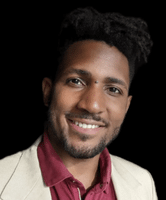
Tykee James. Tykee has been a leader in the birding community for more than a decade as an advocate for equitable access to the benefits of nature for all. From his first job as an environmental educator in his own neighborhood, to his current role as a lobbyist at a land conservation organization, Tykee shares his passion for birds to build trust, coalition, and power.
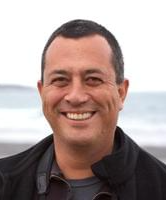
Alvaro Jaramillo. Alvaro is a birder, biologist, and bird-book author. He interfaces widely with amateur birders throughout the Americas, owns a birding tour company, and is a member of the AOS’s South American Classification Committee (SACC), which votes on English names for birds in South America.
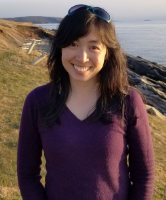
Irene Liu. Irene is a Science Editor at the Cornell Lab of Ornithology’s Center for Conservation Media who has produced diversity and inclusion-themed media to highlight the voices of underrepresented populations. As a member of the AOS Diversity and Inclusion Committee, she co-organized the AOS Community Congress on English Bird Names in 2021, a public forum giving stakeholders a chance to discuss bird names without knee-jerk reactions.
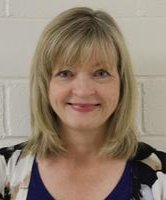
Pamela Rasmussen. Pam teaches at Michigan State University and studies avian taxonomy. She serves on the AOS’s North American Classification and Nomenclature Committee (NACC) and the International Ornithological Union’s Working Group for Avian Checklists. Pam also co-manages the IOC World Bird List.
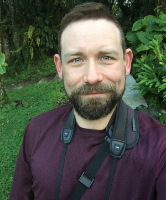
Michael L. P. Retter. Michael is Editor of North American Birds and special issues of Birding, both magazines produced by the American Birding Association. He is also author of the The ABA Field Guide to Birds of Illinois and the upcoming Princeton Photographic Guide to Birds of Mexico, Guatemala, and Belize. His everyday work with English bird names in publications and desire to help affect social justice led to his interest in serving on the committee.
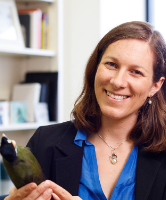
Allison Shultz. Allison is Assistant Curator of Ornithology at the Natural History Museum of Los Angeles County and a member of the AOS Council. In her public-facing role, she is passionate about making birds and the science behind them as accessible as possible.
The committee meets every other week, and the co-chairs meet regularly to assess progress and plan activities. So far, discussions have centered on defining the committee’s role and the scope of its recommendations, with the aim of answering key questions about long-term strategy and implementation. For example, how can the process of addressing problematic bird names broaden participation in bird conservation and make spaces related to the study and appreciation of birds more inclusive and welcoming? What are the technical and communications challenges that may arise when dealing with large-scale name changes?
In an early exercise, the committee brainstormed a list of broad considerations that a name-change process should account for and reasoned that not all honorific English bird names are equally harmful or exclusionary. Therefore, committee members sorted eponymous bird names into categories including birds with obviously problematic eponyms (e.g., those named after people who committed racist acts), eponymously named birds that occur predominantly outside the AOS region, and birds with recently coined eponyms. The committee is now investigating the ways these categories can guide courses of action.
Another important activity for the committee has been to meet with and learn from the experience of people involved with similar initiatives, namely the Better Common Names Project of the Entomological Society of America. Such conversations have provided valuable insights about how to develop the process in ways that promote broad participation of stakeholders and well-supported, sustainable solutions. While different societies have different challenges, it has been encouraging to know that the AOS is not alone in facing this complex issue. Finally, the group has also discussed a variety of procedural matters, such as whether the AOS should consider establishing separate committees to deal with systematic and taxonomic matters related to scientific names, and matters related to common names.
The tasks ahead are still numerous and challenging, but the committee is excited about its progress so far and keen to share more upcoming details about its work with the ornithological and birding communities. Please stay tuned for updates and be prepared to contribute with your insights as the committee seeks feedback!
Co-chairs of the ad hoc English Bird Names Committee
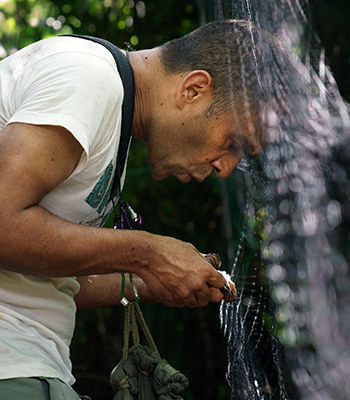
Co-chair
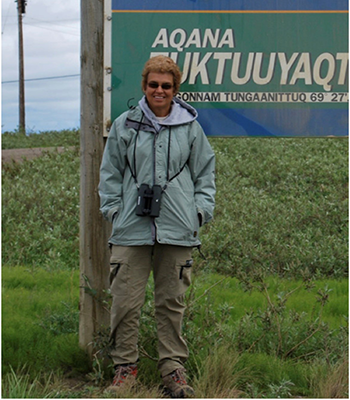
Co-chair
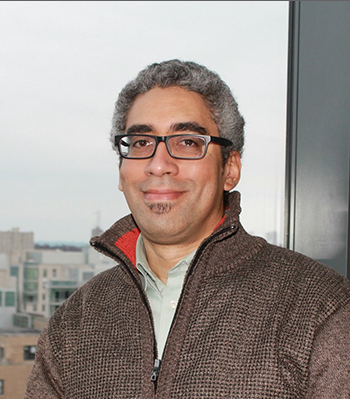
Co-chair
I trust you are involving Gabriel Foley.
Fantastic news! I am delighted to read about your plans to remove eponymous (and problematic) bird names, and your choice to rename the birds according to their characteristics. Well done! Thank you for this much needed change. I can’t wait to buy my new bird guide and transfer over all my sightings. Thank you!
I do not think that all bird names named after people should be changed. For example. Thomas Lincoln traveled with Audubon so what was his crime?